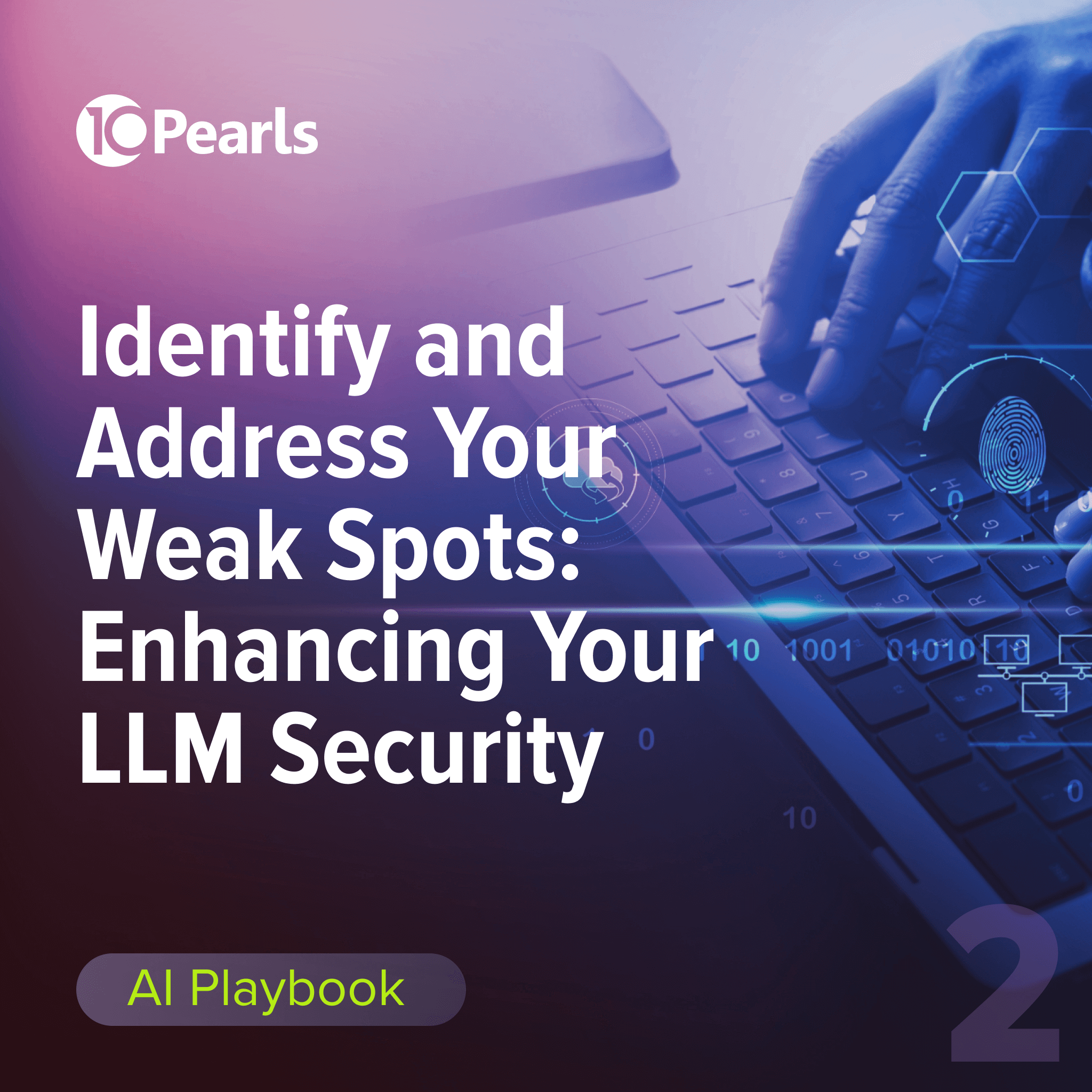Retrieving data. Wait a few seconds and try to cut or copy again.


By 10Pearls editorial team
A global team of technologists, strategists, and creatives dedicated to delivering the forefront of innovation. Stay informed with our latest updates and trends in advanced technology, healthcare, fintech, and beyond. Discover insightful perspectives that shape the future of industries worldwide.
Payment Software Development Process
Financial institutions and fintech companies use payment software to streamline and automate the processing of financial transactions, ensuring secure, efficient, and compliant services. Payment software supports various payment types, including credit/debit card payments, automated clearing house (ACH) transfers, wire transfers, real-time payments, and mobile payments. It enables institutions to manage customer transactions, settle payments, and integrate with banking systems while incorporating fraud detection, data security, regulatory compliance, and reporting functionalities. That’s why it’s essential to assess the development process of payment software providers carefully.
The payment software development market is growing rapidly. According to Verified Market Research, the market for payment processing software is expected to grow at a robust 10.4%, increasing from $67 billion in 2024 to $148 billion in 2031.
Payment software development process: Key steps
For financial institutions and companies considering hiring a payment software provider, understanding the payment development process is essential for ensuring the success of their partnership. A clear grasp of the process will help set realistic expectations and enable effective collaboration with the vendor. The table below outlines ten critical steps in the process.

Payment software development process: 10 key steps
Requirements gathering
- Identify user needs and business objectives.
- Consider compliance with regulations like the Payment Card Industry Data Security Standard (PCI DSS), the EU’s General Data Protection Regulation (GDPR), and local financial laws.
System design & architecture
- Design a secure and scalable system architecture, using encryption and other data protection tools.
- Plan for integrations with banks, payment processors, gateways, and third-party financial systems.
Technology stack selection
- Choose suitable programming languages.
- Select databases, APIs, and frameworks that support secure transactions.
User interface (UI) & user experience (UX)
- Design user-friendly interfaces.
- Ensure ease of use, especially for tasks like inputting payment information and verifying transactions.
Development
- Develop payment processing, user authentication/verification, fraud detection, transaction history tracking, and other features.
- Integrate payment gateways.
- Use encryption and tokenization to secure sensitive data.
Security & compliance
- Integrate strong security to protect against data breaches and fraud.
- Ensure compliance with PCI-DSS and other regulations.
Testing & quality assurance
- Test for functionality, load, security, and user experience.
- Conduct vulnerability assessments and penetration testing to ensure the software is secure from cyber-attacks.
- Simulate payment flows with different currencies and payment methods.
Deployment
- Deploy the payment software in production environments.
- Set up continuous monitoring for performance and security.
Integration with external systems
- Ensure integration with third-party services, including banks, acquirers, and other payment processors.
- Add support for various payment methods, such as credit cards, digital wallets, and bank transfers.
Maintenance & updates
- Regularly update the software to patch vulnerabilities, comply with new regulations, and add features.
- Monitor transaction volumes and system health for reliability.
- Audit the system for ongoing compliance with standards and financial reporting rules.
Financial solutions that use payment software
Financial solutions that facilitate secure and efficient handling of various types of transactions use payment software. These solutions enable online payments, mobile payments, and peer-to-peer transfers. Automated clearing house (ACH) solutions streamline direct deposits and bill payments, and real-time payment systems enable instant bank transfers. These solutions often integrate fraud detection, compliance management, and reporting tools to ensure regulatory adherence and enhance transaction security. Here are some examples of financial solutions that rely on payment software:
- Integrated payment modules: Integrated payment processing systems manage all aspects of banking operations, including payments.
- Payment gateways: Payment gateways are used by financial institutions and fintechs to process online payments, including credit cards, debit cards, and digital wallets.
- Real-time payment networks: These networks enable real-time payments between financial institutions, allowing faster and more seamless transactions.
- Automated clearing house (ACH) systems: ACH systems are commonly used by banks, credit unions, and fintechs for processing direct deposits, bill payments, and interbank transfers.
- Digital wallets and mobile payment solutions: Financial institutions and fintechs offer mobile payment solutions for peer-to-peer payments, online transactions, and in-store payments.
- Fraud detection and prevention software: Financial institutions and fintechs use advanced fraud detection software that leverages AI and machine learning to prevent fraudulent transactions.
- Peer-to-Peer (P2P) payment systems: P2P systems are widely used by financial institutions and fintechs to facilitate fast, easy person-to-person transfers.
- Payment processing software for credit unions: Credit unions often use specialized software that integrates with their core banking systems, designed specifically for credit union needs.
- Cross-border payment solutions: Financial institutions and fintechs offering international payments rely on systems designed for cross-border transactions.
- Card issuance and processing software: Financial institutions and fintechs that issue and process credit/debit cards require specialized software to manage these payments.
These solutions use payment software to facilitate fast, convenient, and secure financial transactions.

Build vs buy: When should financial institutions and fintechs outsource payment software development?
Often, financial institutions have doubts about whether they should use a prebuilt payment solution or build their own. Prebuilt payment software is faster and easier to implement, but it can come with ongoing costs for third-party services and may require a lot of customization and integration, especially when trying to incorporate into existing systems.
To avoid the drawbacks of prebuilt solutions, companies should consider outsourcing payment software development to a provider that can create an experience customized for their users, especially when they want to leverage specific functionalities or integrate with third-party solutions. It’s important to consider that we often provide custom integration services for these third-party solutions. The choice should be based on whether the institution or fintech has a core competency in this area. If they don’t, they will need to build a team capable of managing the solution once it is implemented.
If a financial institution…
- Needs a robust, scalable payment system that can handle a high volume of transactions, support multiple currencies, or process complex payment structures.
- Requires a payment solution that meets strict regulatory requirements, such as PCI-DSS, GDPR, or other regional payment and data privacy laws.
- Needs specialized payment gateways, currency conversion, or local payment methods (like bank transfers, local e-wallets) that aren’t supported by existing platforms.
- Wants to reduce transaction fees by developing its systems to bypass third-party processors or negotiating better terms via custom integrations with payment processors.
- Needs to accept various payment methods—credit cards, digital wallets, cryptocurrencies, bank transfers—and custom solutions for seamless integration with multiple platforms.
- Wants to provide a frictionless, branded payment journey for customers, improving customer engagement and satisfaction.
- Needs payment systems that handle complex flows like split payments, escrow services, or automated payout schedules.
- Wants complete control over payment data and the ability to perform advanced analytics, a custom-built payment platform would provide deeper access and control over the data.
- Requires a custom payment system to integrate seamlessly with other business software, such as ERP, CRM, and inventory management.
Financial institutions and companies benefit from outsourcing payment software development when they need unique capabilities, enhanced security, global reach, or better control over their payment processes.
Payment software development with 10Pearls
With 10Pearls’ passionate and committed fintech team, you’ll get fintech software development services, strategic consulting, and the innovation you need. With decades of experience defining and launching award-winning solutions, we give financial institutions, fintech CEOs, technologists, and product leaders what they need to succeed. Our expertise and flexibility help you drive success in an ever-evolving fintech world.
Using cutting-edge design principles and advanced technologies, we build apps that are not only functional but also visually appealing. Businesses need payment solutions that integrate into existing systems and leverage the latest innovations. Our solutions help you navigate this complex landscape, improve customer satisfaction, and boost customer loyalty.
10Pearls: Your digital partner in fintech innovation
10Pearls is a leading payment software development company, providing software development and consulting services that help businesses with product strategy, design, development, and technology acceleration.
We help organizations stay ahead of industry trends, drive digital transformation, and achieve scalability. Whether you’re launching a new payment platform or modernizing an existing one, 10Pearls brings the experience and insight needed to deliver secure, scalable, and user-friendly payment solutions that drive business growth.







